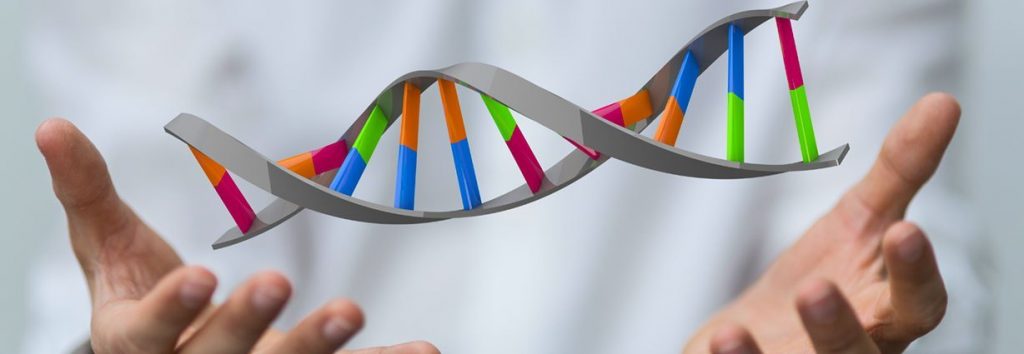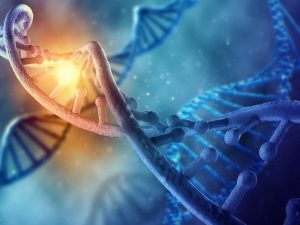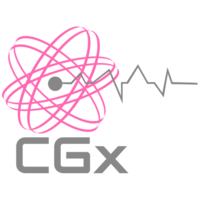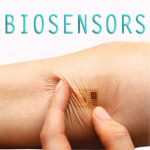Genetic Cancer Screening Benefits for You and for Your Family
Genetic cancer screening can be one of the greatest gifts you can give to yourself and to your family.

Cancer seems to “run in families.” Sometimes this is because families share an environment or lifestyle, such as tobacco use, known to increase the risk of cancer. At other times, mutations in the genes passed from one generation to the next increases a person’s cancer risk. Researchers think that genetic mutations play a role in approximately 5 to 10 percent of all cancers, according to the National Cancer Institute.
Researchers have not identified genetic causes for every type of cancer but they have discovered several gene changes, or mutations, which can pass from a parent to child. These mutations can increase a person’s risk of developing certain types of cancer. Scientists refer to these genetic changes as “hereditary cancer syndromes.”
Types of Hereditary Cancer Syndromes
Hereditary Breast & Ovarian Cancer Syndrome (HBOC)
Medical scientists think that about 5 to 10 percent of breast cancer cases are hereditary, according to the American Cancer Society. Hereditary breast and ovarian cancer syndrome (HBOC) is the most common type of inherited breast cancer. HBOC is the result of mutations in two genes, BRCA1 and BRCA2. A woman who inherits mutations of these genes has a higher risk of developing breast and ovarian cancer during her lifetime than does a woman who does not carry that mutation.

Mutations in BRCA genes can also affect men. A man with an inherited BRCA gene mutation has a higher change of developing breast and prostate cancer at some point in his life. Furthermore, some families with a mutation in the BRCA gene have a higher risk of developing pancreatic cancer, colon cancer and the skin cancer known as melanoma. Mutations in BRCA genes can greatly increase the risk of lung cancer – smokers have about a 13 percent lifetime chance of lung cancer, according to Cancer Discovery, but that risk nearly doubles to 25 percent for smokers with particular BRCA2 mutation.
Mutations in other genes can increase someone’s risk of developing cancer. Mutations in the EGFR, KRAS, and ALK genes can increase the risk for lung cancer. Changes in the MSH2, MLH1, MSH6, PMS2 or EPCAM genes increases the risk of cancers included in Lynch syndrome, such as colorectal cancer and cancer of the endometrium, ovaries, pancreas, small intestine, liver, stomach, brain and breast. Mutations in the TP53 gene can increase the risk of cancers in Li-Fraumeni syndrome, such as bone cancer, leukemia, brain tumors, cancer of the adrenal glands, breast cancer, and other cancers.
For many people, cancer develops as the result of inherited genetic mutations coupled with the effects of lifestyle choices. This means someone with a mutation of the EGFR, KRAS or ALK gene who smokes has a higher risk of developing lung cancer than does someone with the gene mutations that does not smoke.
Benefits of Genetic Testing for You and Your Family
Genetic testing provides several advantages, to both you and your family. Finding out the results of your genetic testing brings a sense of relief from uncertainty, for example. Genetic screening can also provide in-depth knowledge about your personal risk of cancer and provide the information you need to make informed lifestyle and medical decisions.

Perhaps the best benefit of all is genetic testing gives you an opportunity to help educate other family members about their risk for cancer so that they can make positive lifestyle and medical choices too.
If you have mutations of BRCA 1 and BRCA 2 genes, there is a probability that your family members could also have the genetic mutation. Knowing that you have the gene gives you an opportunity to be proactive and to take preventive action, which can change the trajectory of the outcome. For greatest ease of mind, every member of the family tree should undergo CGX testing.
Sources:
- https://www.cancer.gov/about-cancer/causes-prevention/genetics/genetic-testing-fact-sheet
- https://www.cancer.org/cancer/breast-cancer/risk-and-prevention/breast-cancer-risk-factors-you-cannot-change.html
- https://brca.ucsf.edu/brca1-and-brca2
- https://www.ncbi.nlm.nih.gov/pubmed/25195694
Mr. Frank Magliochetti MBA
Managing Partner
Parcae Capital
www.parcaecapitalcorp.com
www.frankmagliochetti.com






